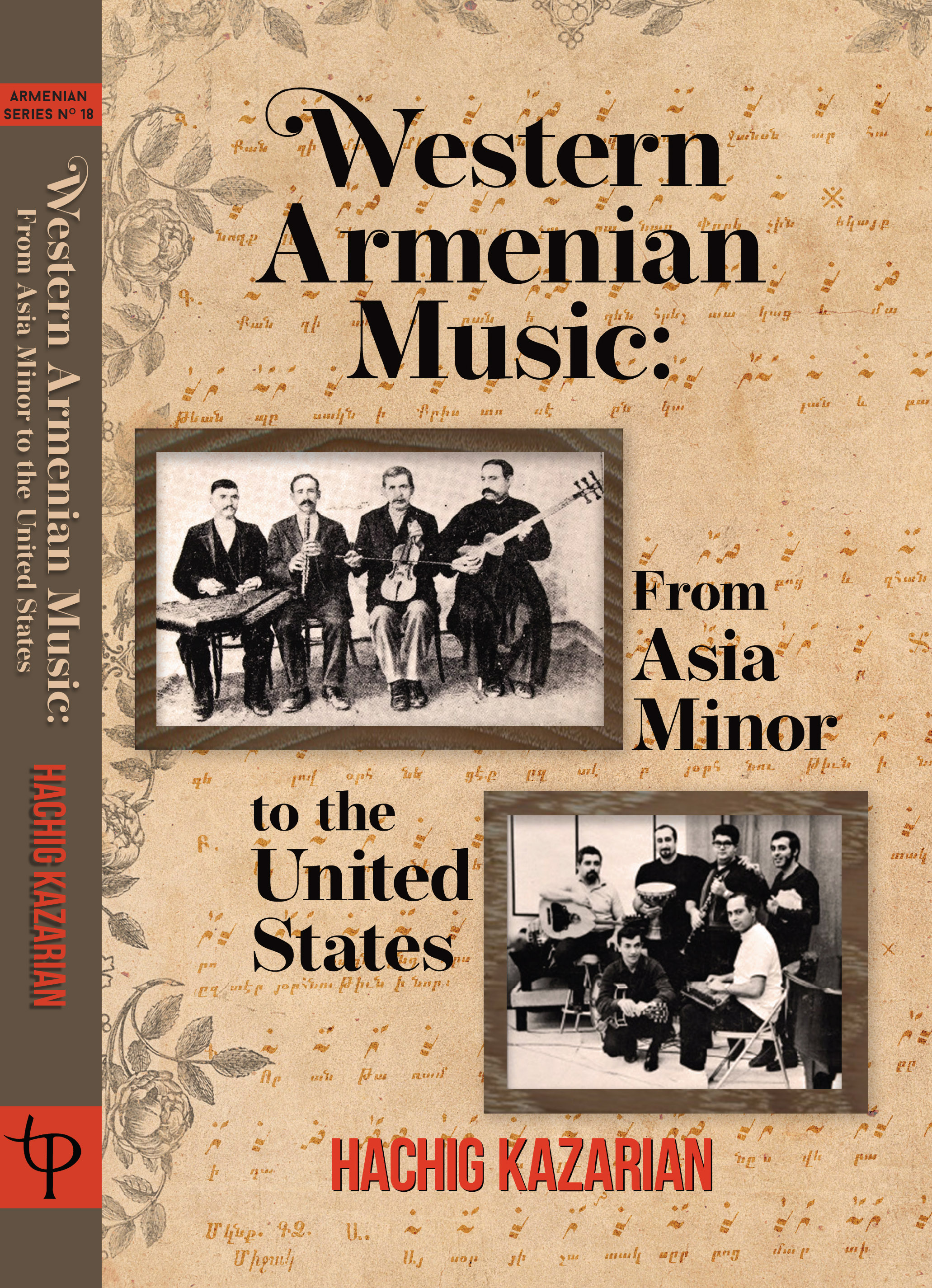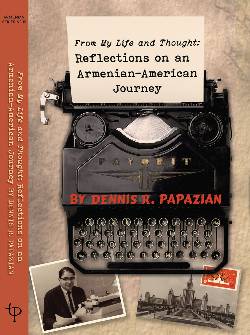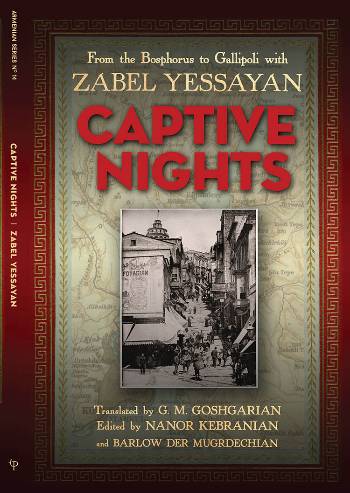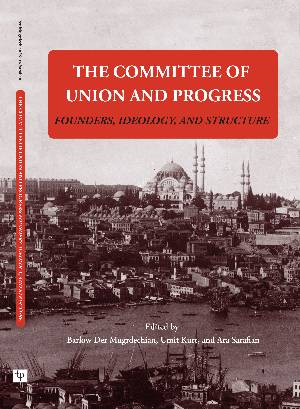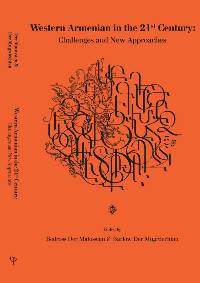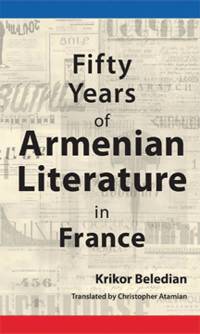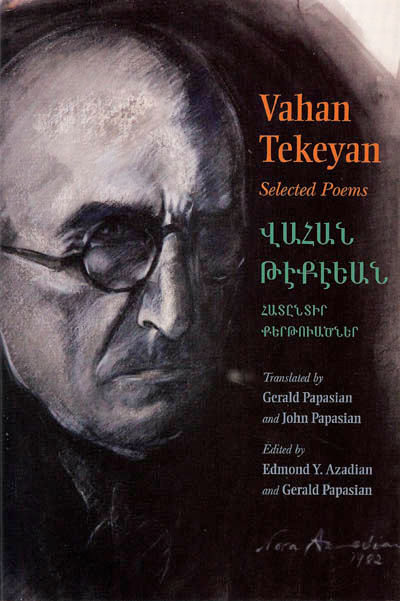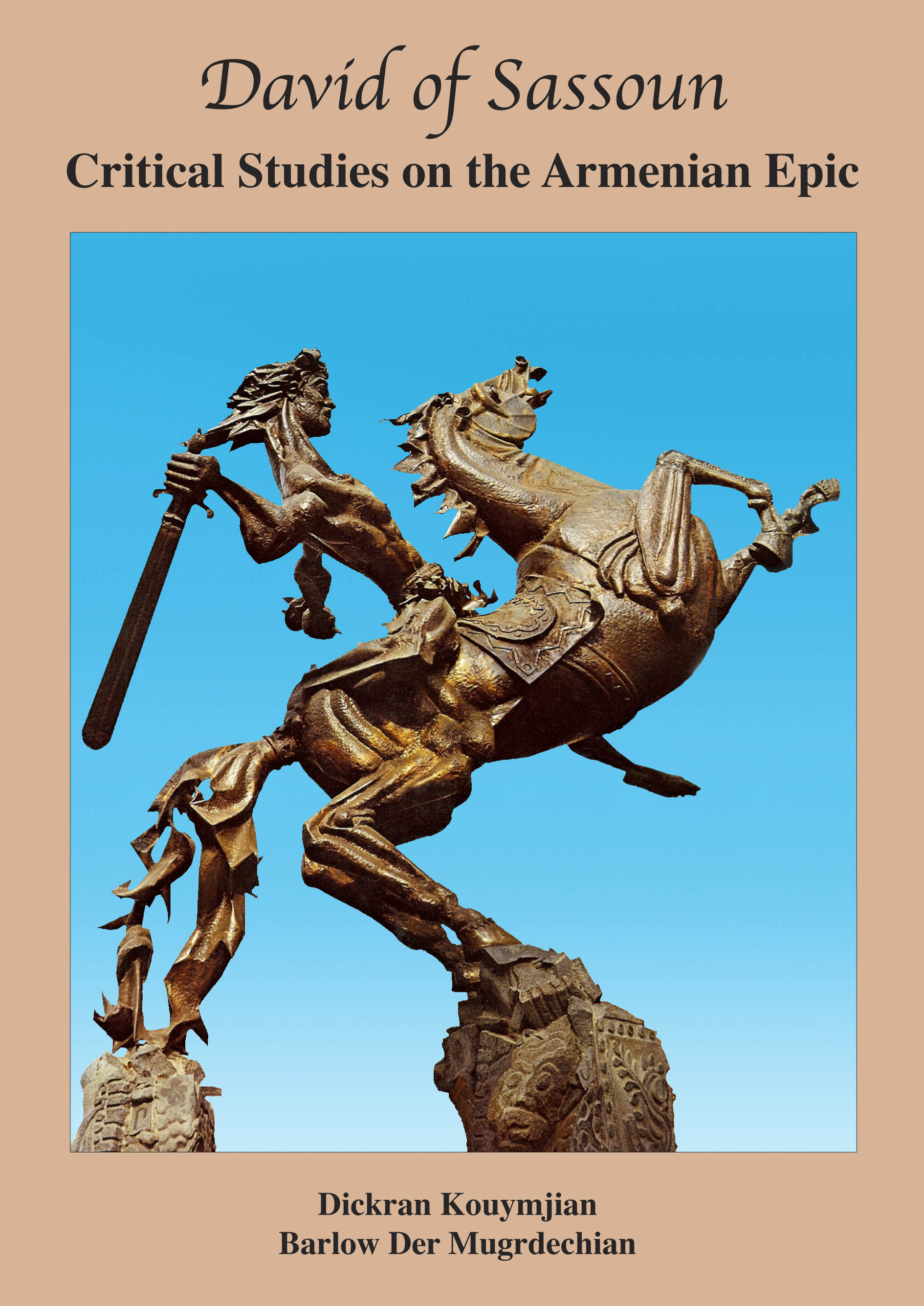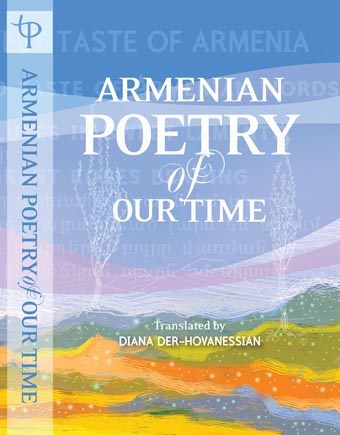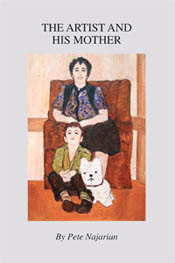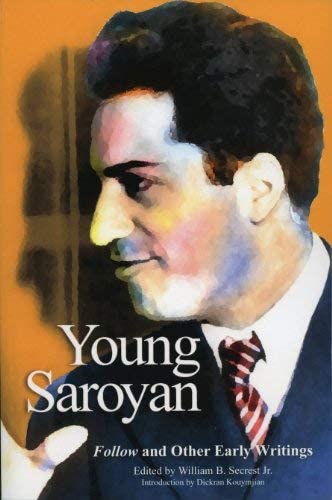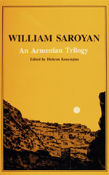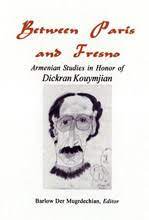Armenian Studies Program
Armenian Series
Established at The Press at Fresno State
The Armenian Series was established at The Press at Fresno State through the Armenian Studies Program. Funding for the Armenian Series was established by the M. Victoria Karagozian Kazan and Henry S. Khanzadian Kazan Endowment.
Barlow Der Mugrdechian is the current editor of the Armenian Series.
Dickran Kouymjian was editor of the series from 1986 until his retirement in 2008.
Twenty-one titles have been published so far through the Armenian Series. Available
at:
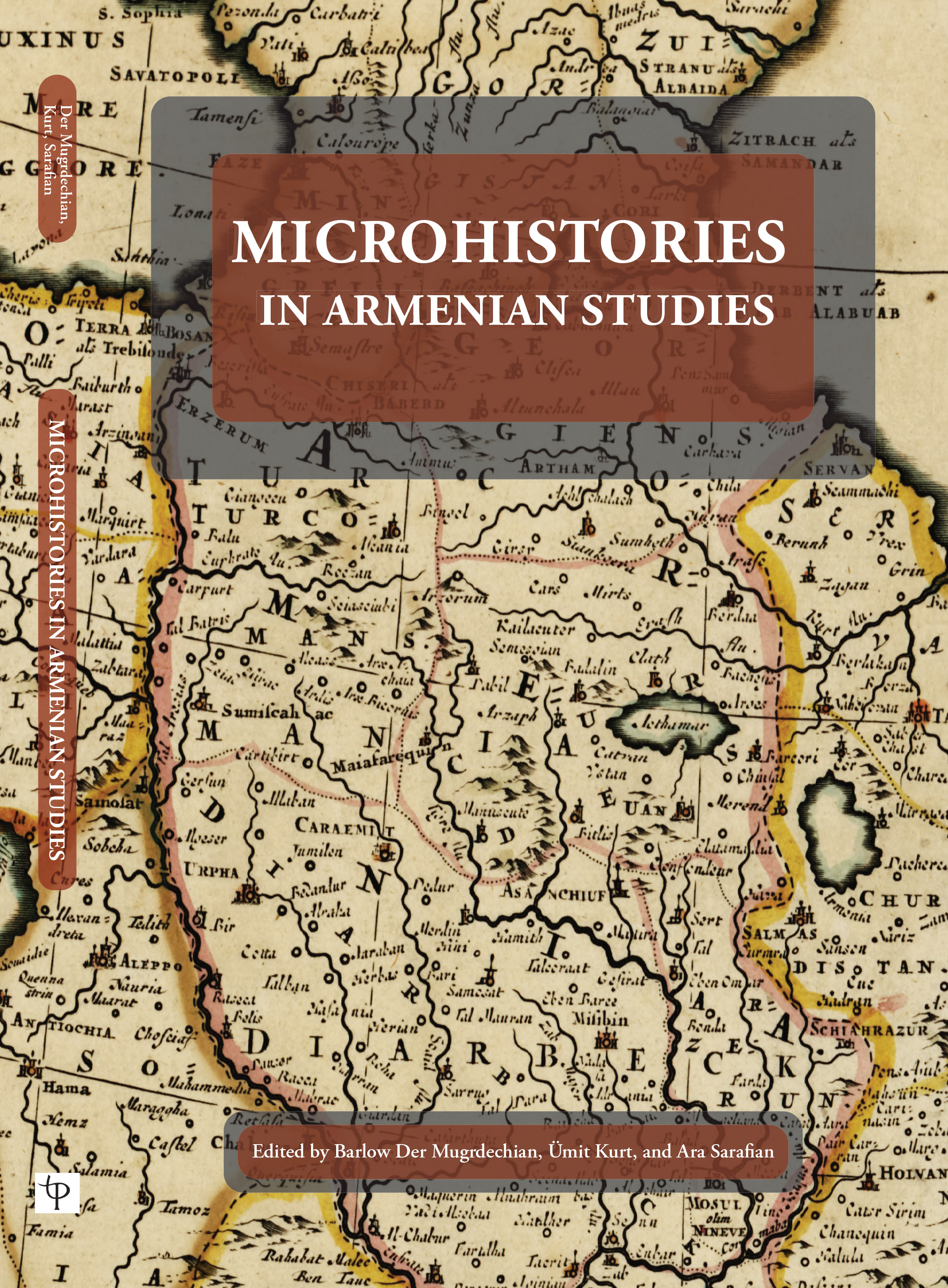
No. 22-2025
Microhistories in Armenian Studies
Edited by Barlow Der Mugrdechian, Ümit Kurt, Ara Sarafian
Based on five probing papers delivered at an international conference organized by Prof. Barlow Der Mugrdechian of the Armenian Studies Program and Dr. Ümit Kurt in 2023, this volume showcases new themes and innovative approaches in contemporary Armenian Studies: Armenian refugees during the Syrian Great Revolt in 1925-1926 (Victoria Abrahamyan), the life and travails of Ottoman agronomist Ohannes Toros Doumanian (Samuel Dolbee), the economic destruction of Aintab Armenians during WWI (Ümit Kurt), the liquidation of Armenian Community Leaders from Sivas at Kötü Han in 1915 (Robert Sukiasyan), and a reported battle in Morenig, 1915 (Ara Sarafian).
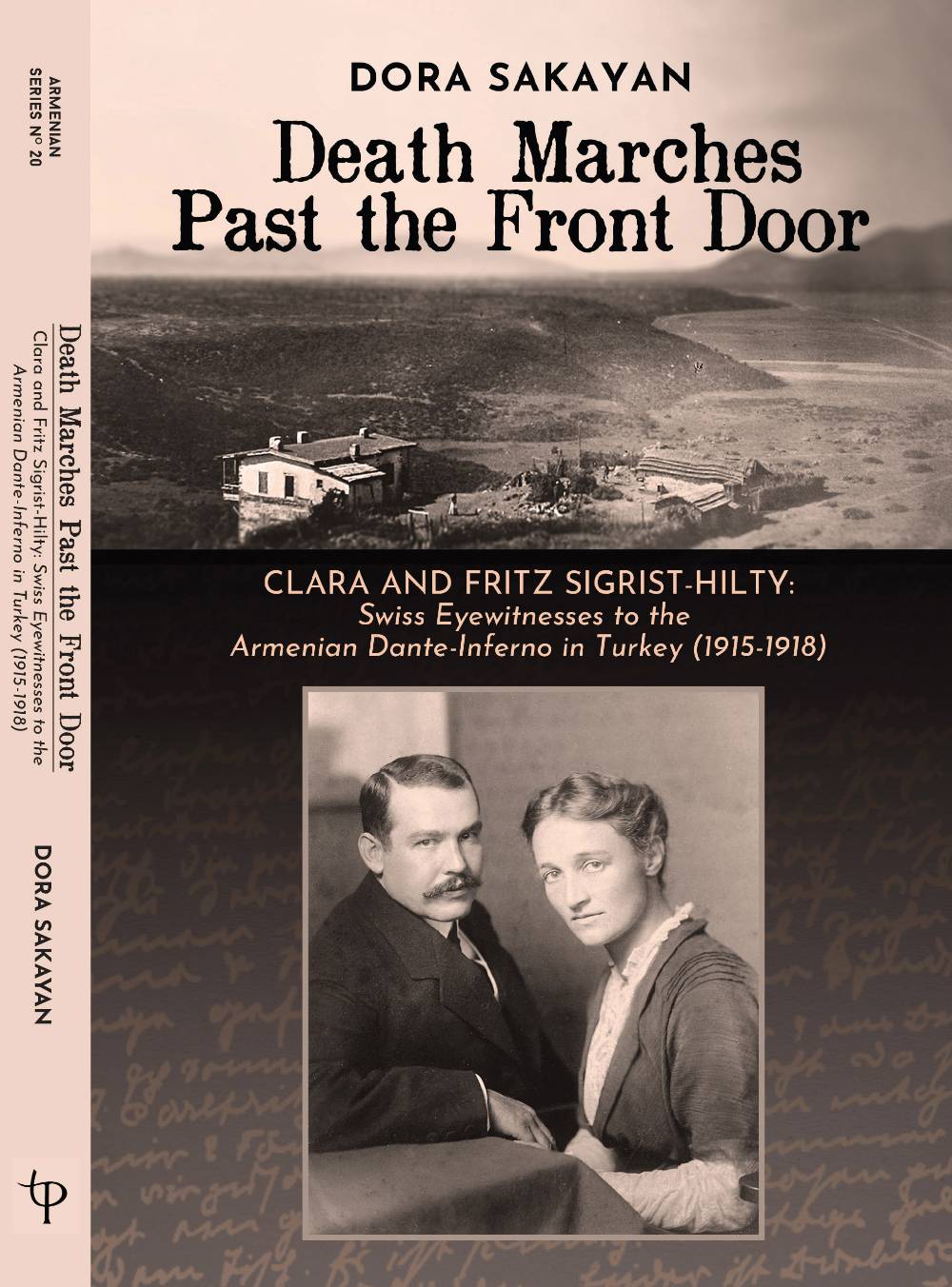
No. 20-2023
Death Marches Past the Front Door
Clara and Fritz Sigrist-Hilty: Swiss Eyewitnesses to the Armenian Dante-Inferno in Turkey (1915-1918)
by Dora Sakayan
Edited by Barlow Der Mugrdechian and Zareh Djeknavorian
Read the fascinating story of Clara and Fritz Sigrist-Hilty. Fritz Sigirst-Hilty was an engineer on the Berlin to Baghdad Railway in 1915 and became an eyewitness to the Genocide. His wife Clara wrote a diary of her encounters during this period.
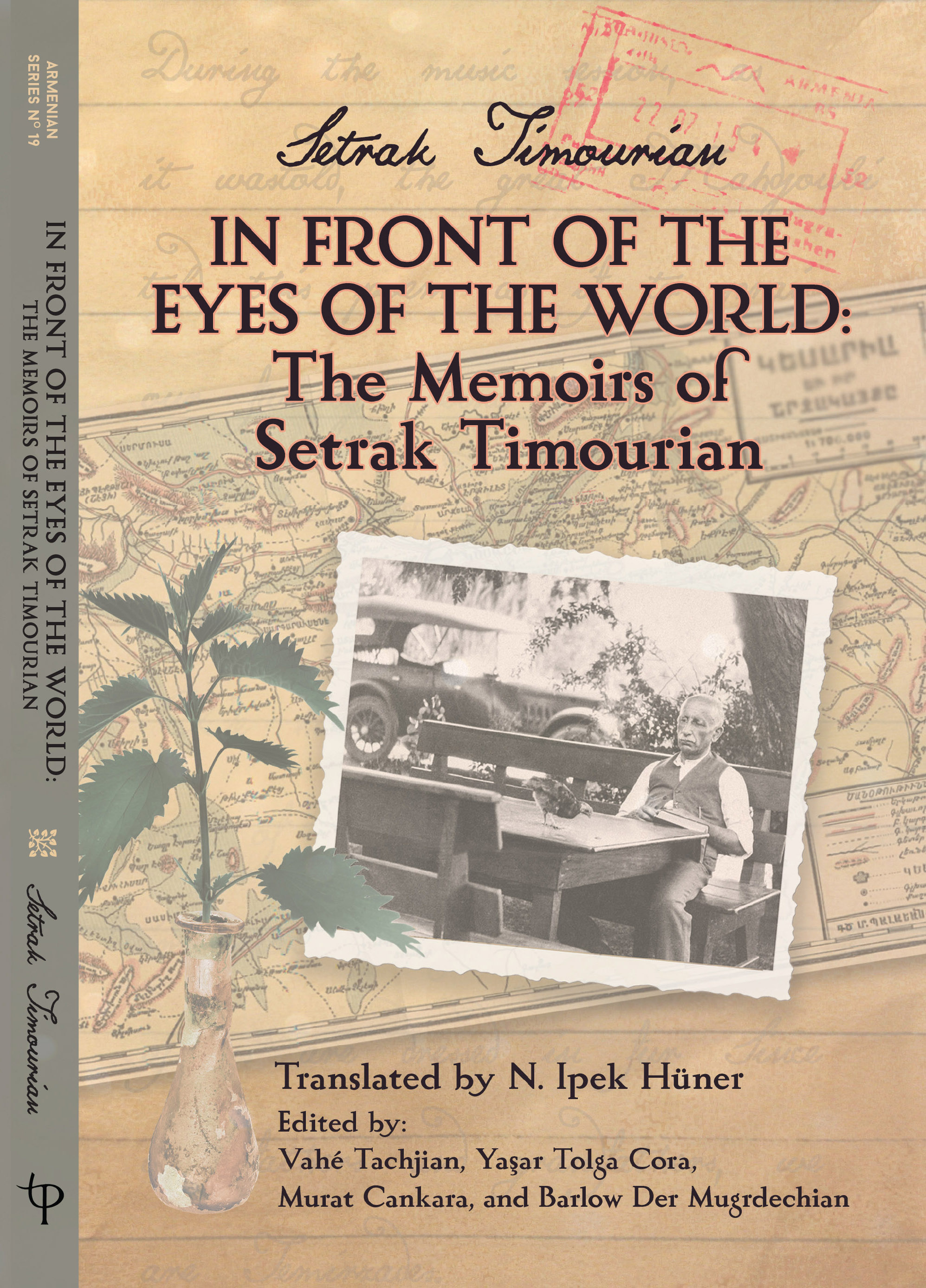
No. 19-2023
In Front of the Eyes of the World: The Memoirs of Setrak Timourian
by Setrak Timourian
Translated by N. Ipek Hüner
Edited by Vahé Tachjian, Yasar Tolga Cora, Murat Cankara, and Barlow Der Mugrdechian
In Front of the Eyes of the World: The Memoirs of Setrak Timourian gives the reader a fascinating and detailed story of the life of Setrak Timourian, who was born in 1860 in Kayseri. He documented in a thorough manner, his life, the life of his family, and his many adventures. Timourian lived during an eventful period in Armenian and Ottoman Turkish history and thus provided insight into the life of Armenians.
The memoirs cover Timourian’s life from the 1860s to the 1930s, and stretches from Kayseri, to Istanbul, and Fresno, including his sojourns in Europe, in London and short stays in New York. His travels to Constantinople and then later to the United States chronicle his life as a carpet merchant and the many challenges that he faced. He also recorded his own views on the important events of the day. In Front of the Eyes of the World is an invaluable record of one man’s indomitable spirit and enthralling life story.
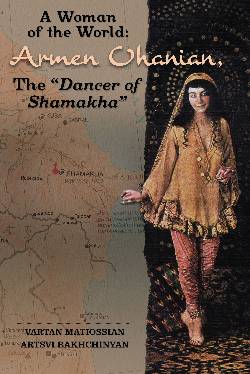
No. 16-2022
A Woman of the World:
Armen Ohanian,
The "Dancer of Shamakha"
By Vartan Matiossian and Artsvi Bakhkchinyan
"A Woman of the World" is a fascinating chronicle of the life of dancer and author Armen Ohanian (1888-1976). She was a well-educated woman born in an Armenian family in the Caucasus and fluent in half a dozen languages—truly a “Woman of the World,” who lived through times and places as diverse as the Russian Caucasus, the Iranian Constitutional Revolution, the Belle Époque in France, the Roaring Twenties in the United States, the early Soviet Union, and ended her days in Mexico after living an eventful life cloaked in mystery. She bridged multiple cultures as an actress in the Caucasus, a theater director in Persia, a writer in France, and a translator in Mexico. Above all she was an acclaimed dancer from Asia to Africa, from Europe to America with the monikers “dancer of Shemakha” and “the Persian dancer.”
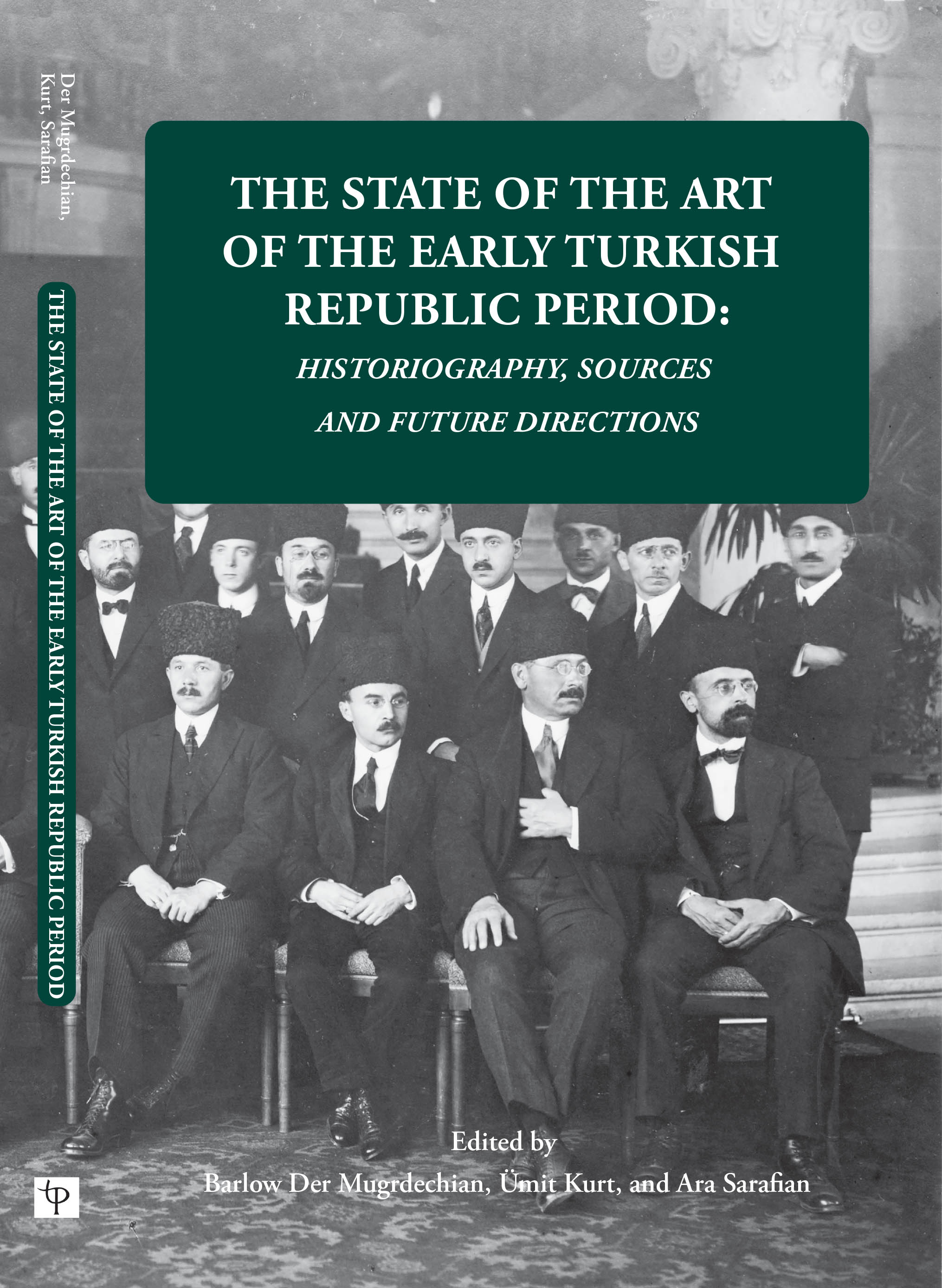
No. 17-2022
The State of the Art of the Early Turkish Republic: Historiography, Sources and Future Directions
Edited by Barlow Der Mugrdechian, Ümit Kurt, and Ara Sarafian
The chapters included in this work were first presented as papers at a conference entitled “The State of the Art of the Early Turkish Republic: Historiography, Sources and Future Directions” organized by Prof. Barlow Der Mugrdechian and Dr. Ümit Kurt, and sponsored by the Armenian Studies Program of California State University, Fresno, October 2–3, 2020. The papers have since been edited and appear here in a single volume.
No. 18-2023
Western Armenian Music: From Asia Minor to the United States
by Hachig Kazarian
Forthcoming October 3023
Silenced for over one hundred years, the Western Armenian music brought to America by the first Armenian immigrants has become an integral part of Armenian culture in the United States. Western Armenian Music: From Asia Minor to the United States examines the many facets of Western Armenian music, and how it has been neglected due to the Armenian Genocide of 1915 and the deleterious feelings left upon the Armenian people. The author discusses such topics as: the Modal System used in Armenian folk and sacred music since the 8th century; traits and characteristic elements of Armenian music; the 19th century Armenian musical notation created by Hampartsoum Limonjian; and the two opposing styles of Western Armenian music performed in the United States. This volume also includes over 100 Armenian dance songs with notations.
Author Hachig Kazarian was born in Detroit, Michigan to immigrant parents of the Armenian Genocide. He is a retired secondary instrumental music educator with 46 years of teaching experience, which includes a suburban Detroit school system and the Clark County schools in Las Vegas, Nevada.
No. 15-2022
From My Life and My Thought: Reflections on an Armenian-American Journey
By Dennis R. Papazian
Born ninety years ago in the pre-WWII, pre-civil rights American South of Armenian immigrant parents from Istanbul, Turkey, Dr. Dennis Papazian reflects on a quintessentially twentieth- century American life shaped by the challenges of the immigrant experience, his family’s struggle to create a life in a new land, and his determined efforts to secure an education that would ensure a life of security and the promise of the American dream.
No. 14-2021
Captive Nights: From the Bosphorus to Gallipoli with Zabel Yessayan
Translated by G.M. Goshgarian and edited by Nanor Kebranian and Barlow Der Mugrdechian
This new collection of translations from Zabel Yessayan’s (1878 – 1943?) internationally renowned body of work presents three of her least-known and most revealing stories: Meliha Nuri Hanum, The Veil, and Enough! Written between 1914 and 1928, these works share a common theme of women – both Armenian and Turkish – struggling against adverse social, political, and cultural circumstances, as they also examine questions of identity and marginalization.
No. 13-2021
The Committee of Union and Progress: Founders, Ideology, and Structure
Edited by Barlow Der Mugrdechian, Ümit Kurt, and Ara Sarafian
This book includes five chapters discussing the significance of the Committee of Union and Progress.
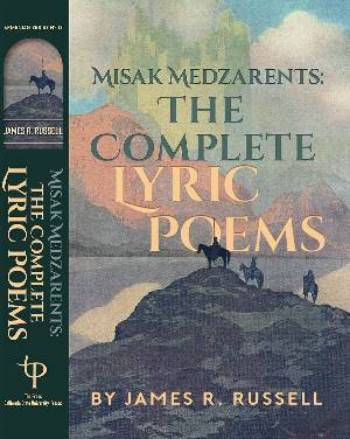
No. 12-2020
Misak Medzarents:
The Complete Lyric Poems
by Dr. James R. Russell
Misak Medzarents,1886-1908, was the second great lyric poet of the Western Armenian
language after Bedros Tourian. During his tragically short life he published several
slim volumes of verse. The poems are written in a complex and allusive language that
deploys ancient Armenian, local dialect, and the vocabulary of Symbolism.
Misak Medzarents: The Complete Lyric Poems is a translation and commentary by James
Russell of Medzarents’ complete works, the first of its kind in any foreign language,
complementing James Russell’s previous work, Bosphorus Nights, of Bedros Tourian.
The Complete Lyric Poems include more than 180 poems written by Medzarents, and includes
the Armenian text of his poems.
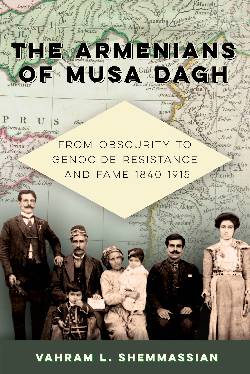
No. 11-2020
The Armenians of Musa Dagh: From Obscurity to Genocide Resistance and Fame 1840-1915
by Dr. Vahram L. Shemmassian
The Armenians of Musa Dagh is a comprehensive history of the people of Musa Dagh,
who rose to prominence with their resistance to the Genocide in 1915. Dr. Shemmassian,
has presented a thorough analysis of the social, economic, religious, educational,
and political history of the six villages which constituted Armenian Musa Dagh. His
work focuses on the important period of the mid-nineteenth to the early twentieth
century, offering the reader a previously unavailable insight into the people whose
courage and persistence ultimately led to their successful self-defense.
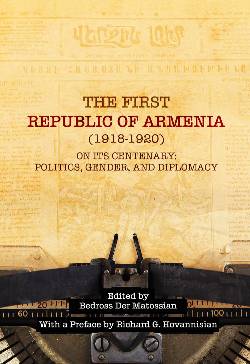
No. 10-2020
The First Republic of Armenia (1918-1920) on its Centenary: Politics, Gender, and Diplomacy
Edited by Bedross Der Matossian
This edited volume provides a multifaceted and interdisciplinary approach to studying
the fascinating history of the First Republic of Armenia. Through an analysis of the
politics, gender, and diplomacy of the period, the volume enriches our understanding
of the short-lived Republic, which played a crucial role in guaranteeing the perseverance
of Armenian identity, and ultimately laying the foundation for the modern Republic
of Armenia.
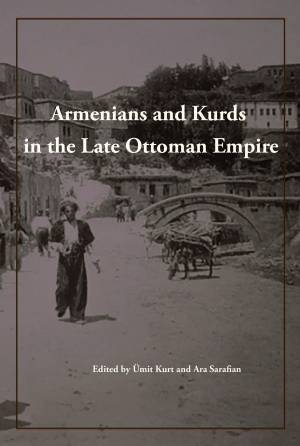
No. 9-2020
Armenians and Kurds in the Late Ottoman Empire
Edited by Ümit Kurt and Ara Sarafian
Five ground-breaking articles that were first presented at a conference called "Armenians, Greeks, and Kurds: A People's History of the Ottoman Empire, held at Fresno State and organized by Prof. Barlow Der Mugrdechian and Ümit Kurt.
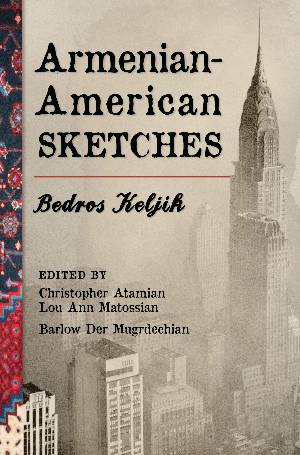
No. 8-2019
Armenian-American Sketches
By author Bedros Keljik
Edited by Christopher Atamian, Lou Ann Matossian, and Barlow Der Mugrdechian
Armenians began arriving to America in large numbers at the end of the nineteenth
and the beginning of the twentieth centuries. They established themselves in communities
throughout the United States, maintaining their Armenian culture, while also becoming
acclimated to life in America. In Armenian-American Sketches, author Bedros Keljik
brings to life this period in Armenian-American history.
No. 7-2018
Western Armenian in the 21st Century:
Challenges and New Approaches
Edited by Bedross Der Matossian and Barlow der Mugrdechian
This volume brings together experts in the field of Western Armenian who focus on theoretical questions as well as practical suggestions in dealing with outdated pedagogical approaches. The volume presents the latest research in the field of language acquisition, which benefits from theoretical and practical approaches in the field of teaching minority languages in a diasporic situation.
No. 6-2016
Fifty Years of Armenian Literature in France
by Krikor Beledian
Translated by Christopher Atamian
This important work is a survey of Armenian literature produced in France from 1922-1952.
Beledian analyzes the major literary trends and artists of the period.
No. 5-2014
Vahan Tekeyan: Selected Poems
(Վահան Թէքէեան: Հատընտիր քերթուածներ)
Edited by Edmond Azadian and Gerald Papasian.
An anthology of the works of poet Vahan Tekeyan, with facing Armenian original with the English translation by Gerald Papasian and John Papasian and with a foreword by Barlow Der Mugrdechian.
No. 4-2013
David of Sassoun: Critical Studies on the Armenian Epic
Edited by Dickran Kouymjian and Barlow Der Mugrdechian
David of Sassoun: Critical Studies on the Armenian Epic (The Press at California State University, Fresno, 2013), 228 pages, a collection of essays by the world’s foremost scholars on the great oral epic of Armenia, edited by Dickran Kouymjian and Barlow Der Mugrdechian. David of Sassoun is the fourth title in the Armenian Series established through The Press at California State University, Fresno.
No. 3-2011
Armenian Poetry of Our Time
By Diana Der-Hovanessian
In 1978 Diana Der-Hovanessian produced the landmark book, Anthology of Armenian Poetry,
translating Armenian poetry into English, and making that poetry accessible to the
broader reading world. The book has been out of print for several years, but the present
volume, Armenian Poetry of Our Time, is Diana Der-Hovanessian’s latest contribution
to the world of Armenian poetry.
Armenian Poetry of Our Time presents works of more than 100 Armenian poets, both well-known
and lesser-known, from the nineteenth century until today. Readers will enjoy the
variety of works and styles presented.
No. 2-2010
The Artist and His Mother
by Pete Najarian
"The Artist and His Mother" is a work of creative non-fiction in the form of a novel whose narrator, a painter and writer, composes not only a portrait of himself and his mother, Zaroohe, but a story of a century from when, as a child of ten, she survived the Armenian Genocide in 1915, to her death in America in 2006.
No. 1-2009
Young Saroyan: Follow and Other Writings
William B. Secrest Jr., editor
introduction and analysis by Dickran Kouymjian
Collected here for the first time are some of the unjustly neglected gems of William Saroyan's early work–including Follow, a gripping autobiographical novella published for the first time in book form–along with letters and unpublished short stories from the author's archive at Stanford University.
Other Titles

Warsaw Visitors, Tales from the Vienna Streets:
The Last Two Plays of William Saroyan (1991)
Dickran Kouymjian, editor
Between Paris And Fresno: Armenian Studies in Honor of Dickran Kouymjian (2008)
Edited by Barlow Der Mugrdechian
This volume is a collection of scholarly articles in honor of Dr. Dickran Kouymjian, whose productive career as scholar, teacher, and prolific public speaker, covers more than fifty years, and reflects his interests in a wider field of Armenian Studies. Kouymjian entered the field of Armenian studies in 1958, thus his career spans close to fifty years, very nearly the span of time in which the discipline of Armenian Studies developed with the founding of the first endowed chair of Armenian Studies at Harvard University in 1959. For the last thirty years, from 1977 to the present, Kouymjian has served as Director of the Armenian Studies Program at California State University, Fresno, and since 1988 he has been the holder of the Haig and Isabel Berberian Chair of Armenian Studies at the same university.
